Meet Lewes FC: The Only Football Club in the World to Pay Men & Women Equally

Lewes FC are the trailblazers of football you may not yet be aware of. They're the only club in the world to pay their male and female players an equal wage.
It’s hard to believe that in a landscape of footballing giants, it is the small East Sussex-based club that have taken such a giant leap forwards in closing the gender inequality gap, but they have - and they were the first to do it.
“If you had to pick the one hardest place to talk about male and female inequality, I think it would be in football because it is the world’s religion and it is male-dominated - that is the challenge the club has set itself," volunteer director Charlie Dobres said.
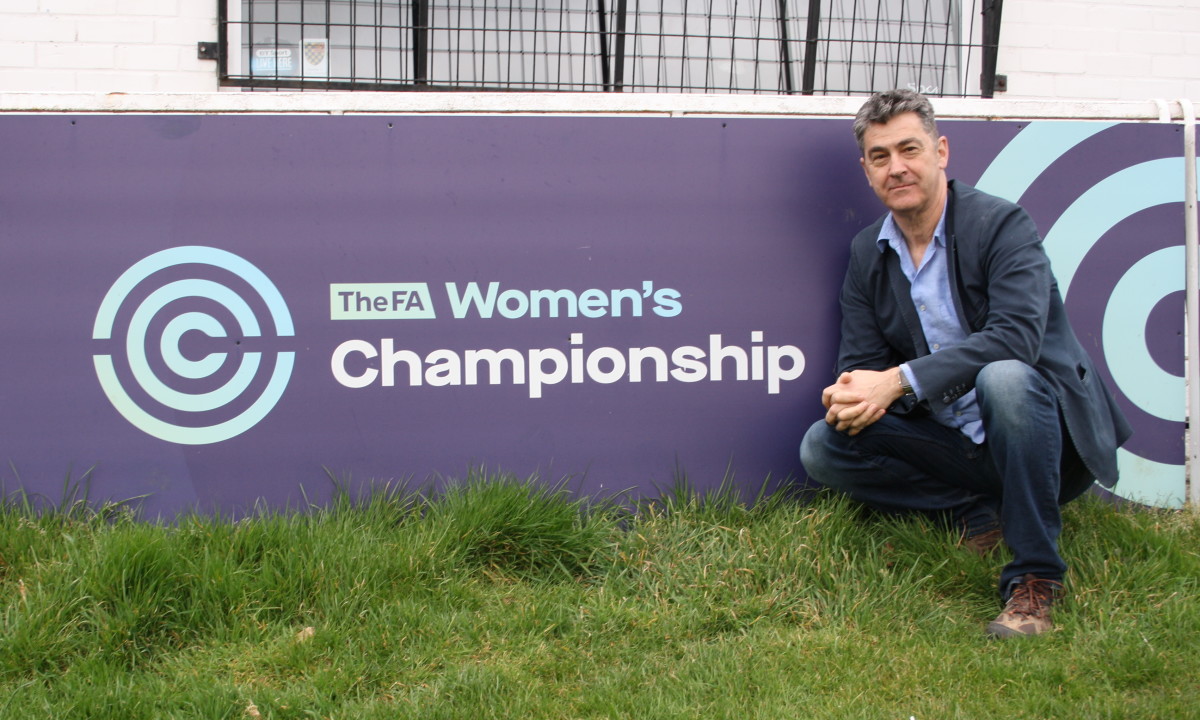
In July 2017, Lewes announced that it would give exact equal resources to its men’s team, who are currently playing in the seventh tier, and its women’s team, who are part of the newly formed second tier.
Since Lewes’ pioneering commitment, both Norway and New Zealand’s governing bodies have pledged to follow suit. The United States women’s national team has opted to sue US Soccer over pay discrimination.
In a World Cup year, where the popularity of the women’s game is skyrocketing, things appear to be moving in the right direction in terms of exposure. But there are still scores to settle on home soil before women’s football conquers the rest of the world.
And although Dobres believes he may have given himself the hardest place on earth to address gender inequality, the world of football might just be the biggest stage on which to champion the fight against it.
✅100% Community Ownership
— Lewes FC Women (@LewesFCWomen) January 26, 2019
✅Men's & women's teams: Equal facilities, equal playing budgets, same home ground
✅Not-for-profit
Like what we do? Join us.
Become an owner or buy someone an ownership share.
Buy online now for just £30!
Just click this link: https://t.co/24WgkrPHKO pic.twitter.com/GP22LfYmHp
“Gender disparity is a gross injustice and I can’t stand it,” he said. “That was my personal motivation for introducing gender pay parity and it matches the motivation of this club which delivers to the community without any discrimination about age, gender, race or religion etc.
“No one can now say that it can’t be done because we have done it. Before that if it had even occurred to people, the response would have been ‘well that is impossible - it can’t be done'.
“If you had to pick the one hardest place to talk about male and female inequality, I think it would be in football. It is the world’s religion and it is male-dominated. So, we have given ourselves the hardest possible place to do it - but we are a football club so what choice do we have?
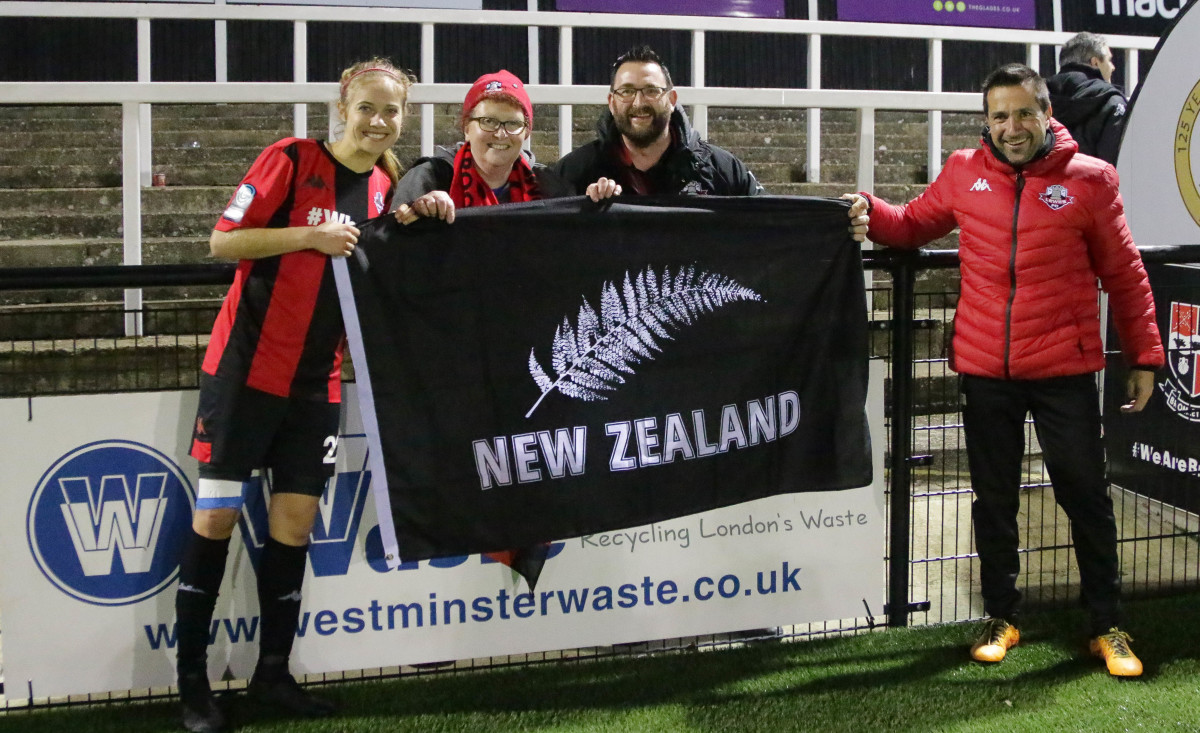
“At the same time, it is the biggest platform. If we can light a fire here and people start to think about gender inequality, then that will jump over walls into the rest of the world - hopefully.”
For Dobres, bridging the gap between men's and women’s football is not just the right thing to do, but it is the responsibility of those who hold positions of power to do so. Between 1921 and 1971, women’s football was banned by the Football Association in England.
During those 50 years of inactivity, Alf Ramsey’s England won a home World Cup, Manchester United became the first English team to win the European Cup and Pelé ran rings around the world’s best players.
Men were playing a sport that only men were allowed play for half a century and it is no wonder that things have turned out the way they have done - but it is still possible to rectify, Dobres said.
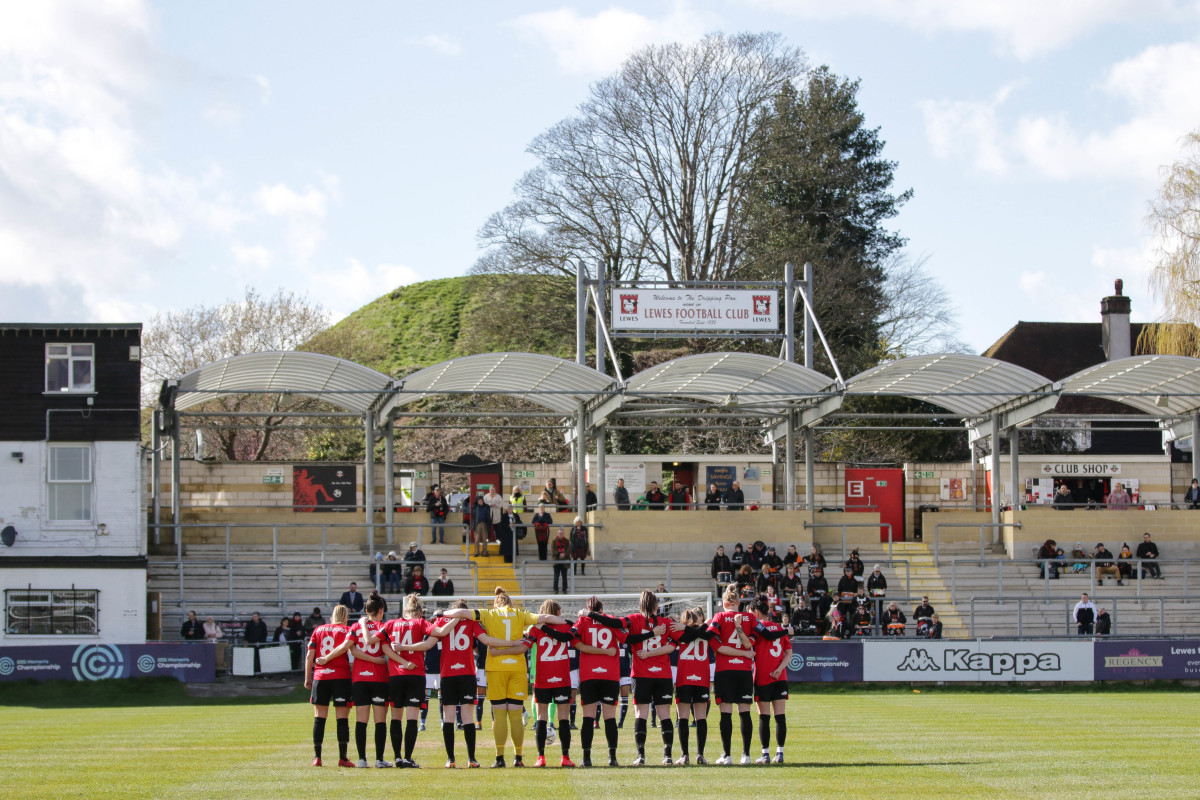
“Anybody growing up during and after that ban makes the assumption that football is man’s game by default,” he said. “I am not trying to point the finger at anybody who is in a position of responsibility now and say that that is their fault, because it isn’t it, but we now have a background context where men’s football is as big as it is because it didn’t have the women’s game for 50 years.
“Men’s football still benefits from that ban, who knows how big the game would have been if there was no ban, so it is about making reparations as much as it is about doing what is right."
Dobres’ involvement with Lewes stems back to 2010 when he, among others, acquired the club for £1 during a time of financial difficulty. Lewes FC was immediately mutualised and became a community-owned football club where an annual stake costs £30 and is available to anybody.
The club’s definition of equality is 'a rising tide that lifts all ships', and it is on that basis that the budget for men’s and women’s football will be identical, neither will any funds be pulled from the men’s team to support the women.
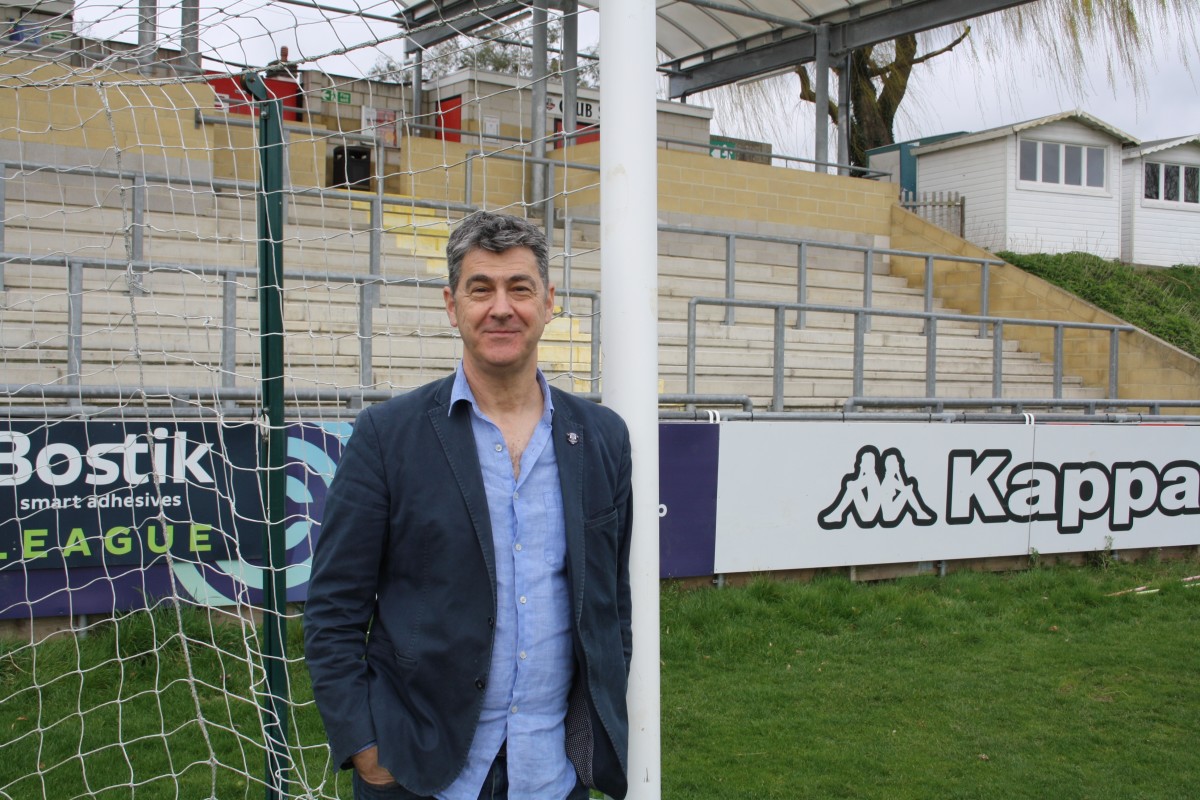
Last summer, when the women’s team’s application to enter the FA Women’s Championship for its inaugural season was accepted, Dobres and the club’s other directors needed to find £80,000 worth of external investment to make it possible - something he was happy to contribute to from his own pocket.
“The way we funded it was never going to be by cutting the men’s budget and reallocating the funds,” he explained. “Instead we formulated a group of people to invest in this ahead of the curve, me included, because it is the right thing to do and because we think that it is an investment that will bring a return to the club."
“We needed to find £80,000 to get it done, and that is what we did. The funds didn’t come from anywhere else other than people who thought it was a good thing to do and backed the idea.
“When we think about the things that are both the measures, and unfortunately the barriers in women’s football, they are attendances, sponsorships, coverage and then the last, which flows from an increase in the others, is the quality of the football being played on the pitch.
Nice to see @LewesFCWomen secure their first home win under @FranAlonsoFA with this worldie from sub @char_owen pic.twitter.com/K5YyytiWDb
— James Boyes (@Gingeraction) March 17, 2019
"These are the tectonic plates of the game and in men’s football each one of these is enormously high. Massive attendances, domination of media coverage in comparison to other sports and huge sponsorships.
“Unless you start shifting one of these plates then you won’t shift any of them.”
And it is already working with Lewes’ women’s team, who are bringing in an average attendance of 667 this season compared to a little over 100 last season. There's also a noticed increase in commercial interest, while the men earned promotion to the Isthmian League Premier Division last season.
But what about bigger clubs? Some of the highest paid players in the Premier League earn more than £200,000-a-week - so should that be the same for the women’s game? No. Or not yet at least. Dobres and Lewes believe it should be something that they should have at least already started preparing for.

“I don’t think I will live long enough to see it, but if I looked back in 50 years’ time and saw that the majority, if not all football clubs in the world had not made the same step forward as us, I would be massively disappointed,” he said.
“Anybody can do it, but we aren’t saying that everybody can do it in the same way and in the same time frame as us.
“If you are someone like Chelsea, you can’t suddenly start paying your female players the same as you are paying your male players. You can name any club in the that top bracket - and that is of course true - but what you can do is to say that today or tomorrow it is our intention to pay our men and women the same.
“How will they do that? Well, they will have to massively grow their women’s teams.”
🗣 "I want to get better, I want to improve, I want to do whatever I can to be a good role model. I want the same things for the women’s game."
— 90min (@90min_Football) March 6, 2019
✍ @JordanNobbs8 on talks about her progression and continually bouncing back! 💪 #SheBelieves https://t.co/WKnLwxHk2D
Earlier this month, women’s football in this country received a massive boost when Barclays agreed to become the first ever title sponsor of the FA Women’s Super League, the top tier of women’s football.
It was a watershed moment for the sport with the three-year deal expected to bring an investment in the region of £10m from the beginning of next year, and a prize money pot of £500,000 - brilliant news if you play in the WSL, but Lewes don’t.
The clubs competing in this year’s competition are doing so for no official prize money and with promotion out of their reach, it looks like Lewes are set for the same fate again next season.
The issue of disproportionate prize money is not something that the club has shied away from either after they took the decision to write an open letter to the FA board earlier this year to close the prize gap.
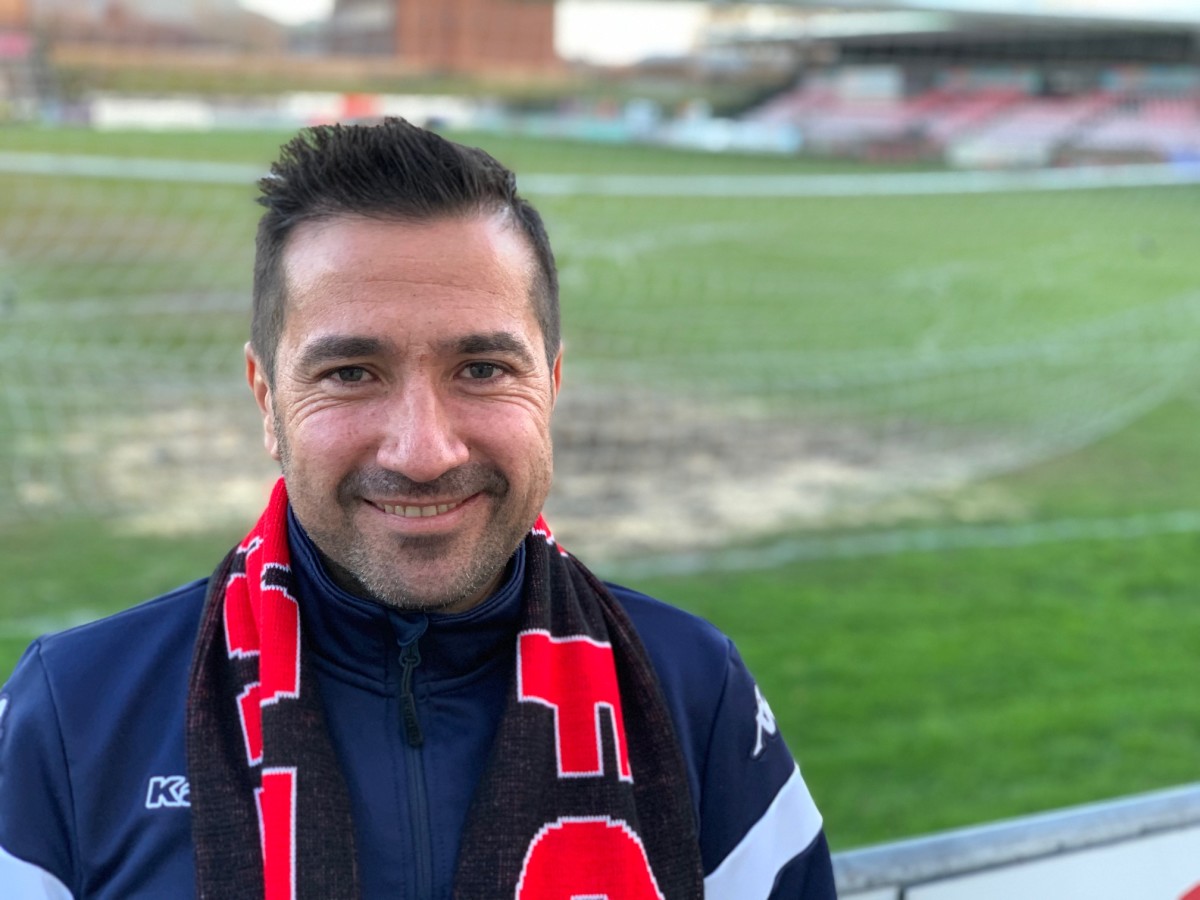
The winners of the Women’s FA Cup currently receive £25,000, compared to the £3.6m paid to the winners of the men’s competition.
Dobres is adamant that the club are absolutely in support of the changes so far introduced as part of the FA's 'Gameplan for Growth' strategy, but would like to see it bolstered by putting more of the £212m generated by the competition into the women’s prize fund.
“There is a massive opportunity to put money directly into clubs through the Women’s FA Cup,” he said. “What we are saying to the FA is that we think this is a really good start and things are working out very well so far, but let’s put some more fuel in the tank, because there is a big block in the road here and it is money.
Incredibly proud to see @womeninfootball up in lights at Piccadilly Circus. @viv @twitter you are truly amazing. Huge thank you to @JacquiOatley @MollieKmita @rosiekmita for supporting our #whatif campaign. It is unbelievable to see how far we have come. #womeninfootball #IWD2019 pic.twitter.com/wMcLRZhd81
— Anna Kessel MBE (@Anna_Kessel) March 8, 2019
“Wouldn't it be great if the top two tiers could have 18 or 20 teams in them in a few years time?
“We would have a lot more fixtures, a lot more revenue and sponsorship and from the FA’s perspective, a bigger pool of players that could improve the national team. The Women’s FA Cup is the perfect mechanism for this and it is staring us right in the face.”
As of 14 March 2019, Lewes had received no official response from the FA and the club is now preparing a working group that will propose for the redistribution of funds into the women’s game via the FA Cup prize fund.
